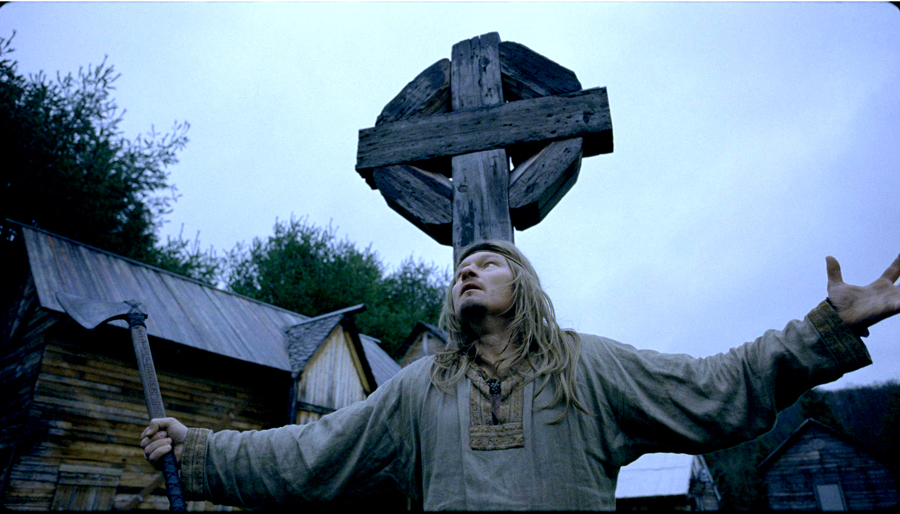Culture
Broken men on “The Wild Hunt”

The Wild Hunt
dir. Alexandre Franchi
Release Date: Jun 07, 11
- 1
- 2
- 3
- 4
- 5
- 6
- 7
- 8
- 9
- 10
Around a year ago, there was word of a film that had been remarkably well received at the Toronto International Film Festival, about the world of LARP (Live-Action Role Playing) and the dark undercurrents that could affect it if the balance between reality and fantasy was ever upset. This was an intriguing prospect. Here was a film that, especially after David Wain’s Role Models had just turned LARPing into a comedic goldmine a couple years prior, could legitimize a vibrant subculture that bought the fantasies of tabletop gamers the world over to life, and treated it with genuine gravity. That film was The Wild Hunt, and it is one of the best films of 2011 that you won’t be able to catch in a local theater, but need to seek out at all costs.
Erik (Ricky Mabe) is stuck at home, taking care of his ill father, and loses his girlfriend Lyn (Tiio Horn) when she says that she needs to get out and breathe. For her, that release comes in the form of turning herself into Princess Evilena at a yearly, massive LARP event, and becoming the prized possession of warring families, particularly Murtagh (Trevor Hayes), a dark shaman with amorous aims that could well transcend the boundaries of the game. Erik has nothing but contempt for this game, one which his brother Bjorn (Mark Krupa) introduced Lyn to and abandoned responsibilities to Erik’s father over. So, when Erik cracks and enters the game, he’s met only with demanding shouts of “Decorum!” (the philosophy of having a character and not breaking it while within the camp) and is soon forced to play by their rules if he’ll have any hope of reclaiming Lyn.
Hunt is a profoundly surreal movie, and that’s in large part because it rarely leaves the realm of the plausible. The comic relief of Erik’s fish-out-of-water predicament early on seamlessly gives way to a portrayal of a misfit subculture that’s at turns poignant and genuinely frightening. Men like Bjorn and Murtagh engage in this not simply because they enjoy it, but because once a year it provides them with a way of life, one in which they can become Viking lords or shamen with a harem, and walk away from a real life that’s by comparison a deeply banal affair. For them, Erik is a bigger slight than the outside world, in that he interrupts the sanctity of the one thing that belongs to them, that is theirs and nobody else’s. That is, until Erik dons a suit of armor and unleashes his inner warrior.
The above might lead you to think that Hunt is a sort of quirky indie dramedy, but here is a dark comedy that is unafraid to face, and eventually dive headlong into, the abyss. There is a point to which the film’s events are predictable (when you consider the narrative of an outside becoming one of the natives, this is almost a bizarro take on Dances With Wolves), but less expected is the descent into the dark. The precarious balance between fantasy and reality is upset, and before long warriors have gone native and the true wild hunt begins. This ritual, in which a designated sacrifice is fitting with an elk’s skull and sent running to be the quarry of a barbarian tribe, is an apt namesake for The Wild Hunt, for man is at his core a barbaric being, one capable of destruction and vengeance like no other.